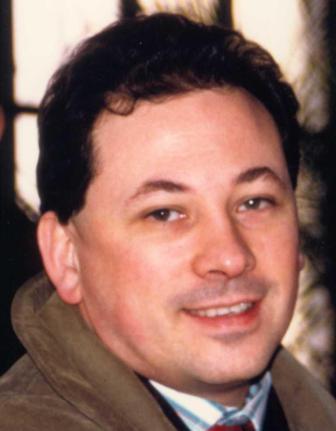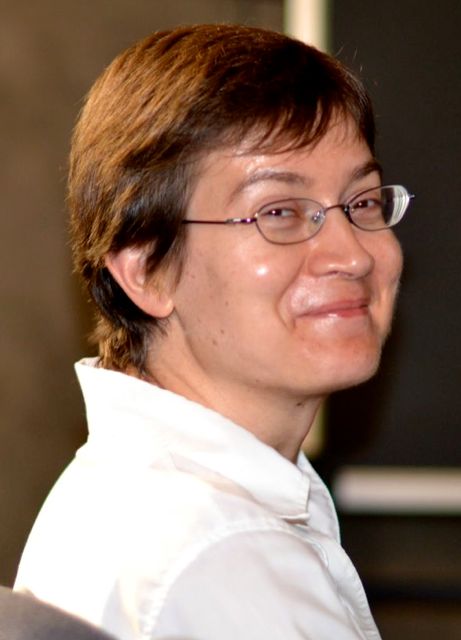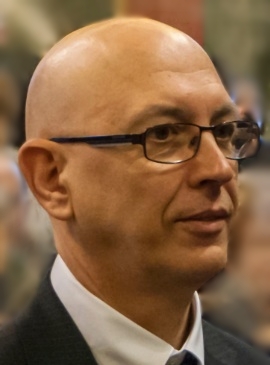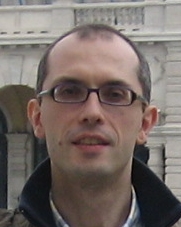Studying at the University of Verona
Here you can find information on the organisational aspects of the Programme, lecture timetables, learning activities and useful contact details for your time at the University, from enrolment to graduation.
Academic calendar
The academic calendar shows the deadlines and scheduled events that are relevant to students, teaching and technical-administrative staff of the University. Public holidays and University closures are also indicated. The academic year normally begins on 1 October each year and ends on 30 September of the following year.
Course calendar
The Academic Calendar sets out the degree programme lecture and exam timetables, as well as the relevant university closure dates..
| Period | From | To |
|---|---|---|
| I sem. | Oct 2, 2017 | Jan 31, 2018 |
| II sem. | Mar 1, 2018 | Jun 15, 2018 |
| Session | From | To |
|---|---|---|
| Sessione invernale d'esame | Feb 1, 2018 | Feb 28, 2018 |
| Sessione estiva d'esame | Jun 18, 2018 | Jul 31, 2018 |
| Sessione autunnale d'esame | Sep 3, 2018 | Sep 28, 2018 |
| Session | From | To |
|---|---|---|
| Sessione Estiva Lauree Magistrali | Jul 19, 2018 | Jul 19, 2018 |
| Sessione Autunnale Lauree Magistrali | Oct 18, 2018 | Oct 18, 2018 |
| Sessione Invernale Lauree Magistrali | Mar 21, 2019 | Mar 21, 2019 |
| Period | From | To |
|---|---|---|
| Christmas break | Dec 22, 2017 | Jan 7, 2018 |
| Easter break | Mar 30, 2018 | Apr 3, 2018 |
| Patron Saint Day | May 21, 2018 | May 21, 2018 |
| Vacanze estive | Aug 6, 2018 | Aug 19, 2018 |
Exam calendar
Exam dates and rounds are managed by the relevant Science and Engineering Teaching and Student Services Unit.
To view all the exam sessions available, please use the Exam dashboard on ESSE3.
If you forgot your login details or have problems logging in, please contact the relevant IT HelpDesk, or check the login details recovery web page.
Should you have any doubts or questions, please check the Enrollment FAQs
Academic staff

Bloisi Domenico Daniele
 domenico.bloisi@univr.it
domenico.bloisi@univr.it
 maurizio.boscaini@univr.it
maurizio.boscaini@univr.it
 federico.busato@univr.it
federico.busato@univr.it
 mila.dallapreda@univr.it
mila.dallapreda@univr.it
Study Plan
The Study Plan includes all modules, teaching and learning activities that each student will need to undertake during their time at the University.
Please select your Study Plan based on your enrollment year.
1° Year
| Modules | Credits | TAF | SSD |
|---|
2° Year activated in the A.Y. 2018/2019
| Modules | Credits | TAF | SSD |
|---|
| Modules | Credits | TAF | SSD |
|---|
| Modules | Credits | TAF | SSD |
|---|
| Modules | Credits | TAF | SSD |
|---|
2 courses to be chosen among the following
Legend | Type of training activity (TTA)
TAF (Type of Educational Activity) All courses and activities are classified into different types of educational activities, indicated by a letter.
Semantic web (2017/2018)
Teaching code
4S02793
Teacher
Coordinator
Credits
6
Language
Italian
Scientific Disciplinary Sector (SSD)
INF/01 - INFORMATICS
Period
II sem. dal Mar 1, 2018 al Jun 15, 2018.
Learning outcomes
The course’s purpose is to provide the fundamental concepts of knowledge representation both respect to the abstract problem of defining a domain ontology and to the problem of indexing documental domains. Specifically, both logical techniques and machine learning techniques for classification and analysis of documents.
At the end of the course the student shall have acquired knowledge bunches on knowledge representation and its applications, and also shall be comfortable with the technical aspects of statistical natural language processing, understanding and connecting both aforementioned aspects while relating them to document repositories, especially the world wide web.
These bunches of knowledge shall habilitate the student in: i) building formal ontologies; ii) managing ontology alignement; iii) managing document retrieval with indices based on text content; iv) using formal methods for text analysis while combining these with automated reasoning techniques.
At the end of the course the student will be able to: i) presenting a conceptual semantic analysis, describing the process that leads a domain expert to the delivery of information needed by the knowledge engineer to deliver a formal ontology describing the interest domain; ii) going further, potentially autonomously, study and research in the field of semantic technologies in several different application fields.
Program
1. Elements of Logic
a. Propositional languages
b. First order languages
c. Second order Languages
2. Introduction to computational logic
a. Reasoning tasks
b. Subsumption, satisfiability, consistency, disjointness
3. Structural description logic
a. The FL- language
i. Syntax
ii. Semantics
b. The AL Logic
i. Syntax and semantics
ii. Structural subsumption algorithm
c. ALU, ALE
d. ALN
4. Propositional description logics
a. ALC, ALCN
i. Syntax and semantics
ii. Tableau for ALCN
b. ALCI
c. ALCQIreg
i. Tableau inapplicability
ii. Two-ways alternate automata on infinite trees
5. Description logic systems
a. Protegè/OWL
6. Natural Language Processing
7. Social network analysis and techniques of social network mining
| Author | Title | Publishing house | Year | ISBN | Notes |
|---|---|---|---|---|---|
| Franz Baader, Diego Calvanese, Deborah McGuinness, Daniele Nardi, Peter Patel-Schneider | The Description Logic Handbook Theory, Implementation and Applications (Edizione 1) | Cambridge University Press | 2003 | 0521781760 |
Examination Methods
The exam consists in the preparation of a homework, in the oral discussion of that with further theoretical questions.
The homework shall consist in the implementation of one of the techniques presented in the lectures, particularly one of the following:
- ontology-driven social network crawling;
- ontology-based text analysis.
First part of the oral exam will detail the modalities of abstract solving and implementation on the chosen problem, that will be agreed with each student individually. Behind this, questions will be posed on discipline contents presented in class and discusses in the textbook.
Evaluation of the homework will consider:
- quality of the implemented solution, relatively to the complexity of the problem, with the regular parameters of effectiveness and efficiency in the field of algorithm theory;
- specific usage of formal ontologies, its formalization and complexity, quality in the adoption of design standards with respect to the current methodologies of domain ontology design;
- complexity of the implemented ontology in OWL-DL and its quality, relevance with respect to the implemented technique.
The oral evaluation will consider:
- completeness in answering to questions related to homework;
- competence on the themes specified in the Course Syllabus;
- correctness and amplitude of the answers to the questions.
Type D and Type F activities
Documents and news
-
 PIANO DIDATTICO LM-18 LM-32
(octet-stream, it, 16 KB, 21/09/18)
PIANO DIDATTICO LM-18 LM-32
(octet-stream, it, 16 KB, 21/09/18)
Modules not yet included
Career prospects
Module/Programme news
News for students
There you will find information, resources and services useful during your time at the University (Student’s exam record, your study plan on ESSE3, Distance Learning courses, university email account, office forms, administrative procedures, etc.). You can log into MyUnivr with your GIA login details: only in this way will you be able to receive notification of all the notices from your teachers and your secretariat via email and soon also via the Univr app.
Graduation
Deadlines and administrative fulfilments
For deadlines, administrative fulfilments and notices on graduation sessions, please refer to the Graduation Sessions - Science and Engineering service.
Need to activate a thesis internship
For thesis-related internships, it is not always necessary to activate an internship through the Internship Office. For further information, please consult the dedicated document, which can be found in the 'Documents' section of the Internships and work orientation - Science e Engineering service.
Final examination regulations
List of theses and work experience proposals
Attendance
As stated in the Teaching Regulations for the A.Y. 2022/2023, attendance at the course of study is not mandatory.

 +39 045 802 7980
+39 045 802 7980
































